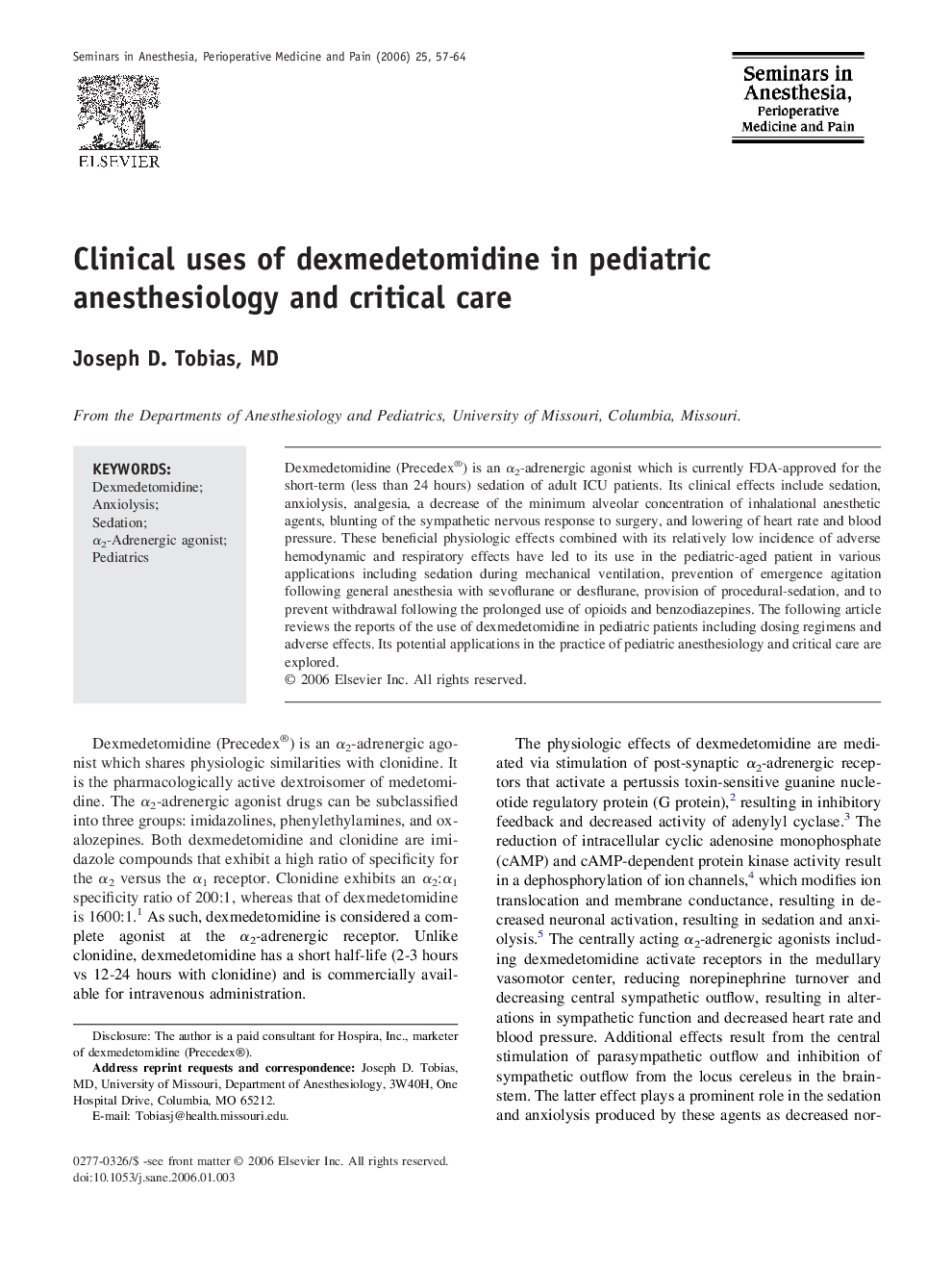| Article ID | Journal | Published Year | Pages | File Type |
|---|---|---|---|---|
| 2771241 | Seminars in Anesthesia, Perioperative Medicine and Pain | 2006 | 8 Pages |
Dexmedetomidine (Precedex®) is an α2-adrenergic agonist which is currently FDA-approved for the short-term (less than 24 hours) sedation of adult ICU patients. Its clinical effects include sedation, anxiolysis, analgesia, a decrease of the minimum alveolar concentration of inhalational anesthetic agents, blunting of the sympathetic nervous response to surgery, and lowering of heart rate and blood pressure. These beneficial physiologic effects combined with its relatively low incidence of adverse hemodynamic and respiratory effects have led to its use in the pediatric-aged patient in various applications including sedation during mechanical ventilation, prevention of emergence agitation following general anesthesia with sevoflurane or desflurane, provision of procedural-sedation, and to prevent withdrawal following the prolonged use of opioids and benzodiazepines. The following article reviews the reports of the use of dexmedetomidine in pediatric patients including dosing regimens and adverse effects. Its potential applications in the practice of pediatric anesthesiology and critical care are explored.
